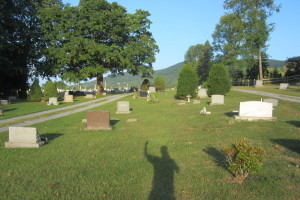I’ve been away – mostly just outside the house – since coming out of my den (see last post). The autumn rains have come and the house is dim, and warm without a fire, just right for an inside day.
As of today the US government is going to start sending me money for as long as I shall live. I suppose I will get used to the idea, but it seems so extravagant on the government’s part. I never really noticed those mandatory Social Security contributions. Besides, I am still a young man!
It occurred to me to say, in explaining the kind of poetry I write (mostly rhyming verse, which is not the current fashion), that the house of poetry has many mansions. You may recognize part of that phrase. In the King James translation of the Bible, the Apostle John reports that Jesus said, “In my Father’s house are many mansions.” The original Greek word for “mansions,” μοναὶ, is sometimes translated “rooms” or “dwelling places” (Jesus was assuring his disciples that there would be room at the inn for them when the time came – confirming their reservation at the grand celestial Airbnb). But the idea of a house somehow opening up from within to disclose larger, grander houses, or mansions in the modern sense (which seems to be supported by passages in Isaiah and Revelation), is very appealing. What did “mansions” mean in 1611? The OED or, better yet, a concordance to Shakespeare will explain. Yes, Shakespeare uses the word 14 times, nearly always in the sense of “dwelling place,” literally or metaphorically. One use struck home:
Why so large cost, having so short a lease,
Dost thou upon thy fading mansion spend?
That’s from Sonnet 146 (“Poor soul, the centre of my sinful earth”). The “thou” is, of course, the body, the soul’s “fading mansion.” It was fading for Shakespeare, it seems, well before the Sonnets were published, when he was 45. He never reached 66 (he died at 52). In the lines above, Shakespeare seems to be referring to liberal spending on expensive clothes and perhaps Elizabethan cosmetics (not my style anyway). So my question, which began with the house of poetry, ends with poetry about a kind of house.
My body is fading (in small ways) enough for me to have intimations of mortality, but I can report that I have found a home for it: in the Shaftsbury Center Cemetery, whose earliest burials date from 1765. The Cemetery is conveniently, and very scenically, located at the end of West Mountain Road just one mile from where I am sitting. The Town sells plots, and with the kind assistance of Mr. Coonradt, Cemetery Supervisor, a few weeks ago I bought one. I anticipate being cremated, and my ashes interred there (but if they blow away in the wind I won’t mind), but I will leave the choice of marker to my children. I will, however, suggest an epitaph to them. I have always enjoyed the poetic epitaphs on our older local stones. I composed one in that style:
Upon the rising mountainside
You face I lived and there I died.
I stood here once, as quick as you,
And chose this plot: enjoy the view.
This house is not visible from that spot, but the woods that surround it are. How many people get to visit their own grave? It’s not as morbid – or as vain – as it sounds. Robert Frost, who chose a plot in the Old First Church Cemetery in Old Bennington when he was 66, gave me the idea. He lived to 88. If I do too, it will have been a long goodbye! Or greeting.

The rain has stopped (all four inches of it). Time to walk down the driveway and get the mail.
You’re so Gothic at times, really. Cute picture.